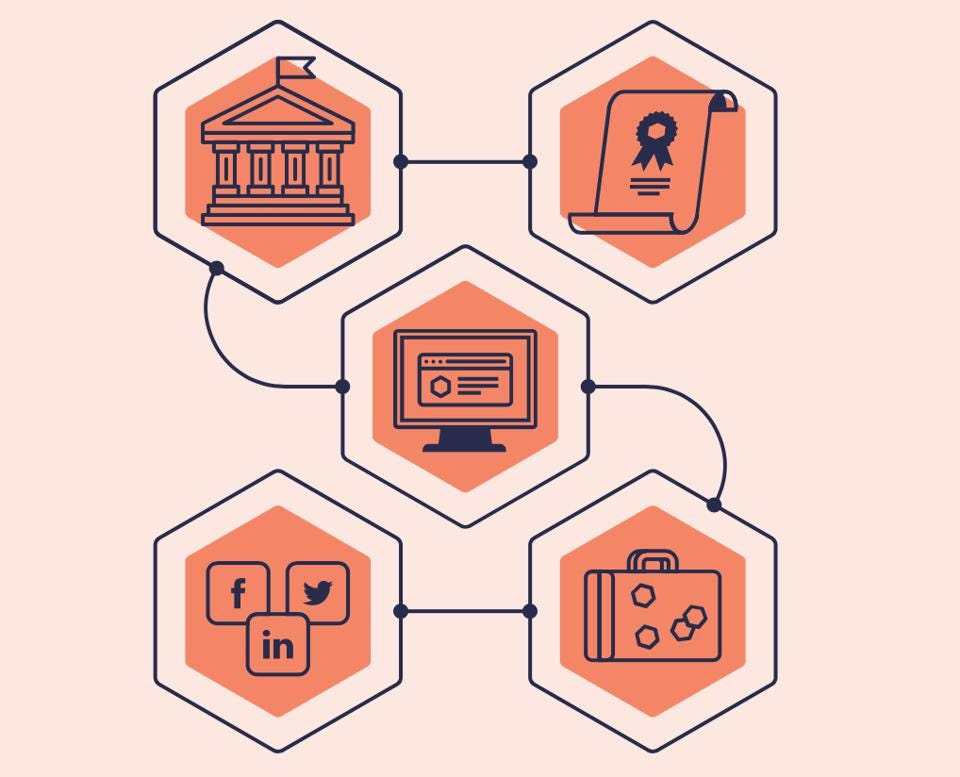When it comes to developing a successful career, having the right credentials can make a world of difference. Credentials are qualifications that demonstrate your expertise in a particular field. In today’s competitive job market, employers look for candidates who have the right combination of experience and qualifications.
So what are some examples of credentials? Well, academic credentials include degrees and diplomas you have earned or partially completed. Professional certificates and work experience count as occupational qualifications. Other types of credentials could include training requirements, certifications, licenses or educational certificates.
For example, if you’re looking to become a nurse, you’ll need to obtain an associate’s degree or higher in nursing or complete an accredited nursing program. You will also need to pass the National Council Licensure Examination (NCLEX-RN) and obtain your license from the state board of nursing in order to practice professionally. Once you’ve done this, you’ll be able to list your credentials as RN (Registered Nurse).
If you’re looking for a job in finance, then obtaining a CFA (Chartered Financial Analyst) certification would be beneficial for your career prospects. This credential is highly valued by employers and demonstrates that you have advanced knowledge and experience in the field of finance.
In some cases, having additional certifications or training can give your resume an edge over other applicants who may not possess them. For example, if you’re looking to work as an IT professional then having CCNA (Cisco Certified Network Associate) certification could prove invaluable when it comes to finding employment in this field. Similarly, if you want to get into teaching then earning a TEFL (Teaching English as a Foreign Language) certification would make you more attractive to potential employers.
Having the right credentials can open up many doors when it comes to finding employment opportunities and setting yourself apat from other applicants with similar skillsets but no qualifications beyond them. With so many options available today such as completing online courses or enrolling in specialized programs that offer specific certifications for certain professions – there’s no excuse not to beef up your resume with relevant qualifications!
Types of Credentials
1. ID Numbers: ID numbers are typically used to identify a person or organization. This type of credential is often used in the healthcare industry, where each patient is assigned a unique ID number to help track medical records and billing information.
2. Cards: Cards are physical credentials that are issued by an organization or government agency. They can come in the form of driver’s licenses, debit cards, or other forms of identification. These cards contain identifying information such as name, address, and date of birth whih can be used to verify identity.
3. Mobile IDs: Mobile IDs are digital credentials that are stored on a mobile device such as a smartphone or tablet. They usually use encryption technology to securely store personal identifying information, and they can be used for authentication and authorization purposes.

What Are an Individual’s Credentials?
A person’s credentials are the qualifications and certifications they have achieved to demonstrate their knowledge, skills, and abilities. This could include academic qualifications such as degrees, diplomas, or certificates that have been completed or partially-completed from an accredited school or institution. It could also include professional qualifications such as occupational certifications, licenses, or work experience gained in a specific field. Credentials also include awards and recognitions received for excellent performance or results in a particular area. Lastly, credentials may also refer to personal attributes such as communication skills, problem-solving skills, organizational skills, creativity and inventiveness.
Listing Credentials
When listing credentials after your name, it is important to order them correctly. Start by including your academic degrees, then list any professional licenses you may have, followed by any state designations or requirements you may have fulfilled. Next include any national certifications you have earned, and finally list any other certifications you may have. It is important to note that the order of these items should be based on the level of expertise and qualifications they indicate. For example, a Master’s Degree would come before a professional license or certification. Additionally, credentials should be listed using abbreviations or acronyms whenever possible. For example, a Bachelor’s Degree in Business Administration would be listed as BBA rather than writing out the full title. This allows for concise listing of credentials while still conveying the appropiate information.
Job Credentials
Credentials are often required by employers when considering applicants for a job. They can include a variety of qualifications that demonstrate an individual’s knowledge and experience, such as specialized training, certifications, licenses, or educational certificates. Credentials may be necessary to demonstrate an individual’s ability to adequately perform the duties of the job they are applying for. For example, a position in accounting might require a Certified Public Accountant (CPA) license or certification, while medical and health care positions often require specific certifications related to teir field. Generally, credentials are used to assess an applicant’s qualifications and can be used as evidence of their ability to meet the employer’s expectations for the role.
Including Credentials on a Resume
Credentials on a resume are any relevant qualifications, experiences or skills that make you well-suited for the position you’re applying for. This could include degrees and certifications, work experience, volunteer experience, specialized knowledge or skill sets that are pertinent to the job. By including credentials on your resume, you can demonstrate to employers that you have the necessary qualifications and experience to be successful in the role. Credentials can also provide evidence of your commitment to continuing education and professional development.

Do Degrees Count as Credentials?
Yes, a degree is a type of credential. A degree is an academic qualification awarded by a postsecondary institution, such as a college or university, upon completion of a specific program of study. Degrees come in many forms, including associate’s degrees, bachelor’s degrees, master’s degrees and doctoral degrees. Earning a degree shows employers that an individual has achieved a certain level of knowledge and proficiency in their field. A degree may also be required for certain professional positions or to gain entry into advanced education programs.
Showing Email Credentials
The best way to show your email credentials is to include them in your email signature. Your most important credential, such as an “MBA” for example, should be placed close to your name on the same line or directly under it. If you have multiple credentials that you would like to include in your signature, you can add them in a list format with each credential listed separately. Make sure that the credentials are formatted correctly and are easy to read. Additionally, it may be beneficial to link each credential to a website that provies more information about it. This will provide readers with more details and also allow them to easily verify the accuracy of the information provided.
Are Certificates Credentials?
Yes, a certificate is a form of credential. It is an academic qualification awarded by colleges, universities or other educational institutions to recognize the successful completion of a coure or program. Certificates are typically earned by completing a specific set of courses in a particular field or discipline and are often seen as evidence of mastery in that subject. While some certificates may have the same name as degrees (such as an Associate’s degree), they may not be equivalent and may not necessarily be considered for credit toward a degree at another institution. Certificates can, however, provide additional skills and knowledge to enhance career opportunities, demonstrate expertise in specialized areas, or serve as an entry point into higher education.
Conclusion
In conclusion, credentials are important in many industries and can demonstrate a person’s knowledge and skills. They range from academic qualifications such as degrees to occupational qualifications such as professional certifications or work experience. Credentials can also include training time required as a condition of employment and often result in certifications, licenses, or educational certificates. Having the proper credentials is essential for success in many fields and should be taken seriously by those looking to further their careers.
